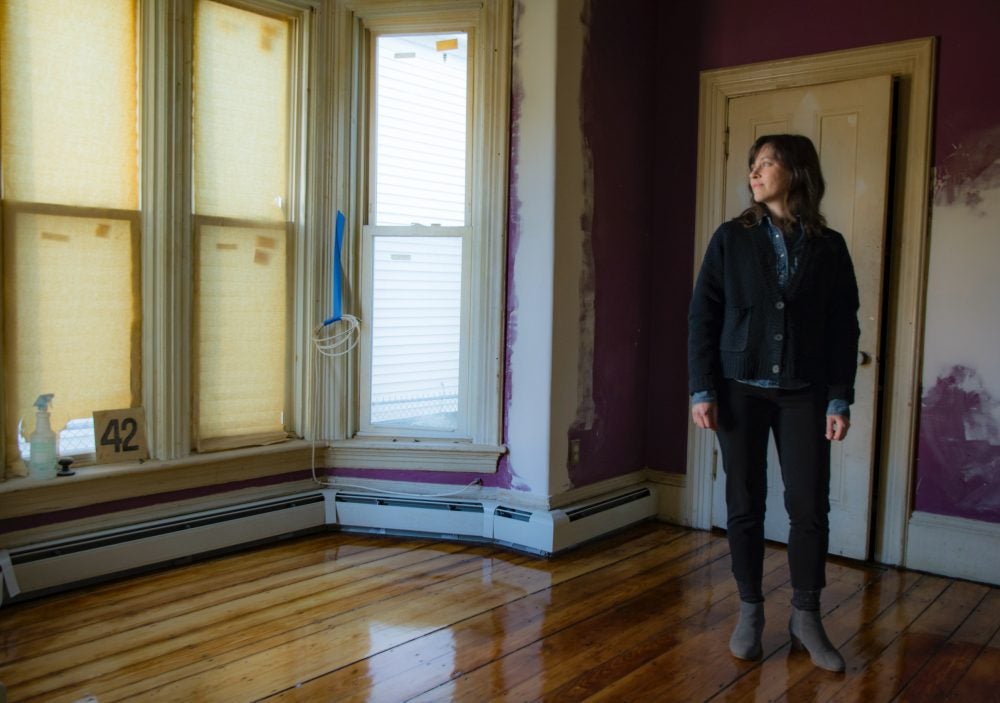
Author Vikki Warner in the house that inspired her recent memoir
In Tenemental: Adventures of a Reluctant Landlady, author and English major Vikki Warner ’98 recounts her purchase of a tenement house in Providence and her dream of establishing an urban utopia—at least within the bounds of her chain-link fenced yard.
For Warner, the publication of her first book is both the realization of a dream and the natural next step in her career as a writer and editor.
“I’ve truly been nursing a love of writing as long as I can remember, although I rarely showed my work to anyone or tried to publish it until fairly recently,” Warner said. “At URI, a few excellent creative writing classes began to poke holes in my shyness about sharing my work.
“After college, I published a few pieces in publications with wider audiences (newspapers and magazines). And it sort of went from there.”
Here’s a look at Warner’s work and her life as a reluctant landlady from the pages of Tenemental.
Tenants she’s known: I’ve filled my home with an outlandish array of people (80 percent male) and animals (60 percent feline): punk farmers, herbalists, body piercers, musicians who play metal, punk, country-rock, psych, and folk (or some combination thereof), chefs, bike mechanics, angry straight couples, boisterous gay couples, couch-crashers, geeks, losers, insomniacs, hippies, alcoholics, artists, pit bulls, Dachshunds, Chihuahuas, ferrets, and a bona fide cat parade.
The neighborhood: My Providence brethren have simply learned to live with the patterns of waste and grift in the city, mostly by devising artful new ways to complain and joke about it in our Yankee way. But we stay here because we really love this place. We even love that it is often openly terrible. New Englanders love punishment.
The myth of the nasty landlady: The women I know who rent apartments to tenants are fairly young, dangerous with a spreadsheet, and firmly in charge of their homes and lives, so we might want to update the accepted shorthand “generic landlady” image of an angry, broom-wielding old lady.
Potential perils of planting a garden: We joked about dead bodies; secretly I was slightly anxious that we might encounter one. In the heart of a formerly mob-controlled neighborhood, digging down is a dicey prospect.
No regrets: Buying the house and selecting a long line of opinionated outsiders to live in it with me has added to a series of proclamations: I’m tough and capable, and nobody can tell me how to live; I want to be with my weirdo brethren; we spit on your plywood mansion out in the suburbs. Even when none of the above is particularly true—when the experience of owning the house is terrible and I’ve stopped wholly believing in it—even then, I’m happy it’s not ordinary.

